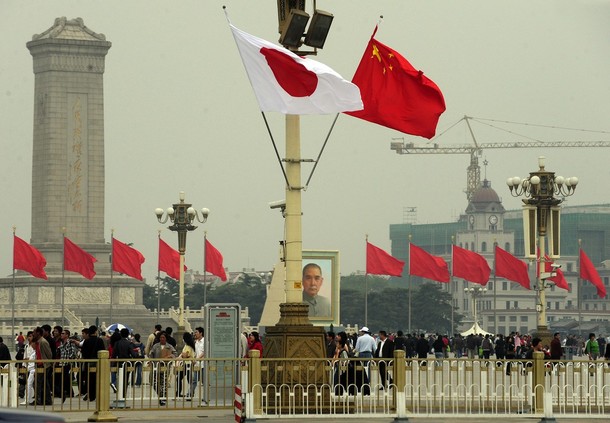and that China will always seek a compromise. The Japanese believe China needs Japan for a number of reasons, be it to protect its foreign image as a peacefully developing country, to maintain its export- and FDI-dependent economy, to cope with its environmental problems, or to reduce its energy consumption. Prime Minister Hatoyama has stated that the creation of a good atmosphere and a strengthening of an East Asian community will allow the solution of even the most difficult problems. But are such views too complacent? Do they actually reduce Japan’s options in the medium and long term while China’s overall power is growing?
The issue isn’t whether Japan and China will find long-term strategic stability or not, a point I am optimistic about. The question is how this will affect Japan’s interests and what the costs may be for peace and stability in the region during the short and medium term.
The three main problems are: the differing views on Japan’s aggression against China until 1945, the handling of the Taiwan issue, and the territorial disputes in the East China Sea.
Despite the Chinese government’s control, Chinese public opinion has become a much more independent variable while public opinion in both countries has become more negative towards the other.
The most sensitive issue for China is the future of Taiwan. Japan’s alliance with the US and its official position of not having any legal authority to say anything about the ultimate legal position of Taiwan, after having renounced its own title to the island, raise Chinese suspicions. The resulting Chinese suspicion is mirrored by Japan’s concern about the rise of China’s military and the recent rapprochement between Taiwan and the mainland.
The disputes in the East China Sea (ECS) concern the sovereignty of the Senkaku Islands (Diaoyu Islands in Chinese) and the border of the Exclusive Economic Zone (EEZ) between Japan and China. The solution of the latter issue is closely related to the sovereignty dispute, as well as EEZ agreements between China and Korea, and Japan and Korea, the latter holding competing claims to an EEZ in the northern part of the ECS. Pressure to reach a conclusion comes from China’s relentless exploration and exploitation of oil and gas resources in the ECS. They now face the difficulty of starting negotiations on the basis of the understanding reached in June 2008.
These three main issues should be put into the context of the growing economic competition and political rivalry of the two countries. China is translating its economic might into political, cultural, and military power. In contrast to Japan, China, from very early on, has understood how to punch above its weight.
Japan’s general approach in dealing with China has been to engage the country in as many policy fields as possible. This engagement policy basically consists of offering China political and economic incentives to become a responsible shareholder, which produces political and economic policies beneficial to the liberal economic system, hedged by political and military measures to prevent China from becoming a military threat.
The challenge is to get the balance of this complex policy right between its soft and hard elements. The emphasis on dialogue has resulted in a number of problems, including ambiguity about the ultimate outcome of engagement policy. Dialogues can be conducted for their own sake, in order to win time and to bridge the gap between periods of rudderless political leadership.
A more promising Japanese–China policy has to be conceived by better accounting for the global, regional and bilateral frameworks of Japan. The global/regional context is, above all, framed by Japan’s comprehensive alliance with the US, and the growing US rivalry with China. How does Japan see its role in Washington’s China policy, which is still aimed at maintaining its preponderance in Asia? If it concedes from the beginning that China will become a threat if US preponderance is not maintained, then its margin for a different China policy will remain limited while the US retains the option of making an about-turn to protect its interests. In the case of the East China Sea, Japan has to decide whether the insistence on a legal position (at the risk of rising tensions) is more important than even a limited but secure access to the natural resources of the area.
Reinhard Drifte is Emeritus Professor at Newcastle University in the UK. A longer version of this article was first published in the Asia Pacific Review in November 2009, and a Japanese version was published in the Yomiuri Quarterly, January 2010.

